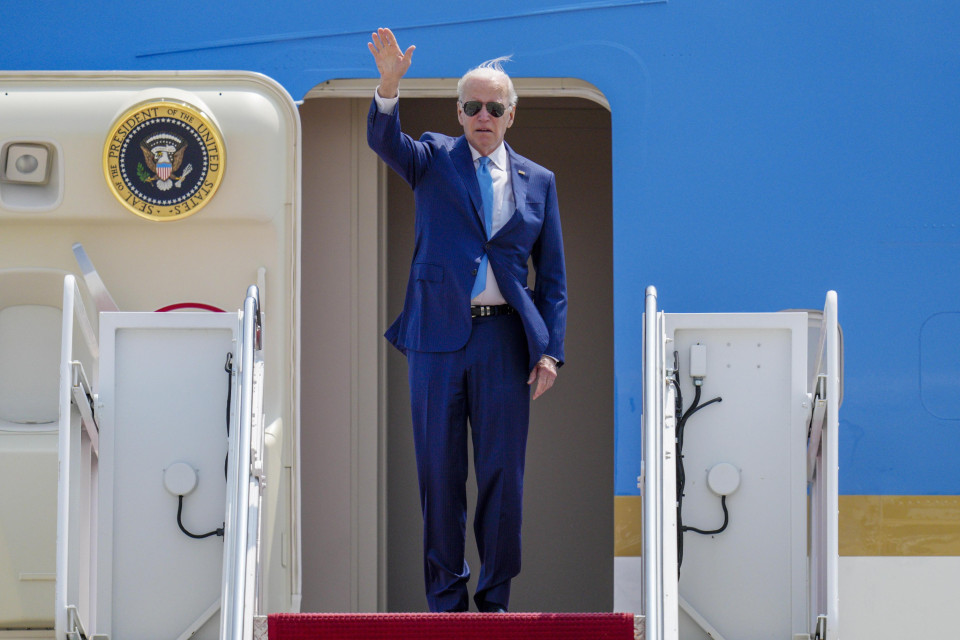U.S. President Joe Biden has no plans to issue an apology on behalf of the United States for the use of an atomic bomb on Hiroshima in 1945 during his trip to the city in western Japan for the Group of Seven summit, according to his national security adviser.
Biden, as one of the G-7 leaders, will "pay respects both for history but also respects" to Japanese Prime Minister Fumio Kishida, who represents Hiroshima as a lawmaker, Jake Sullivan told reporters aboard Air Force One before arriving in Japan on Thursday.

Biden will attend the three-day summit of the group of industrialized democracies starting Friday as scheduled, after canceling other pre-planned stops on what would have been a weeklong trip at the last minute to return home to deal with stalled negotiations on the debt ceiling.
Biden landed at the U.S. Marine Corps base in Iwakuni, located about 50 kilometers southwest of Hiroshima, on Thursday afternoon. He became the second sitting U.S. president after Barack Obama to visit the city that was devastated by the world's first atomic bomb attack, carried out by the United States in the closing days of World War II.
He then held one-on-one talks with Japanese Prime Minister to reconfirm the strength of the two countries' alliance.
He is scheduled to visit the Hiroshima Peace Memorial Museum with other G-7 leaders on Friday before the start of discussions that will focus on key global issues, ranging from Russia's war against Ukraine, supply chains and clean energy to artificial intelligence and nuclear disarmament.
Sullivan said concerns and issues related to China will also be dealt with at the G-7 summit.
"I think you will see...alignment and convergence around the fundamental principles of our approach to the People's Republic of China," he said.
The visit to Japan is Biden's second since taking office in January 2021, and it comes after months of wrangling between his administration and congressional Republicans over government spending.
The U.S. Treasury Department has warned that the federal government could run out of money to pay its bills as early as June 1 if Congress does not raise the debt limit.
The impasse seems to have hampered Washington's efforts to make up ground in the Indo-Pacific region, where China's influence is rapidly expanding.
After the summit, Biden initially planned to stop for about three hours in Papua New Guinea to meet with leaders of the Pacific Islands Forum, an 18-member group that promotes cooperation among mostly small countries in Oceania, before going to Sydney.
Biden would have been the first sitting U.S. president to visit the Pacific island country, which has a population of nearly 10 million and is rich in natural resources.
Sullivan said Biden is now preparing to hold a summit with Pacific island leaders late this year.
In Sydney, Biden had planned to hold talks with the three other leaders of the Quad grouping -- Australian Prime Minister Anthony Albanese, Kishida and Indian Prime Minister Narendra Modi.
As Albanese and Modi have also been invited as guests to Hiroshima, officials of those countries are hoping to arrange at least brief Quad discussions.

Related coverage:
Hiroshima under tight security ahead of G-7 summit
Biden leaves for Hiroshima to attend G-7 summit
G-7 summit to kick off Fri. with tour of Hiroshima A-bomb museum











